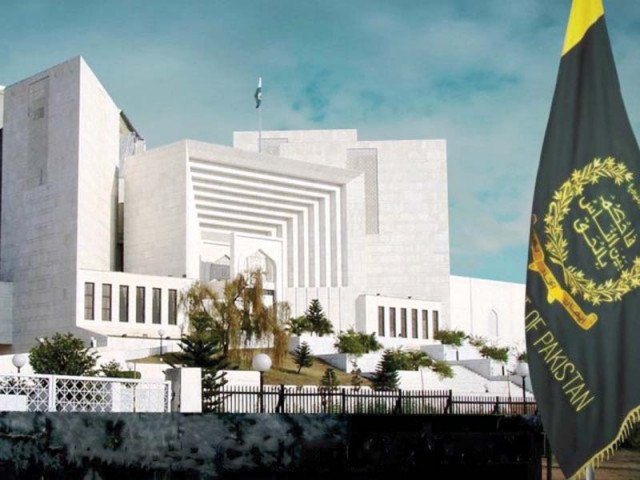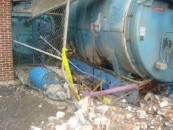Without master plan: How to stop unplanned construction, asks SC
Top court seeks plans of Murree, Kahuta, Kotli Sattiyan

PHOTO: EXPRESS
The observations came during a suo moto hearing by a three-member bench of the Supreme Court comprising Justice Maqbool Baqar, Justice Faisal Arab and Justice Aijaz Afzal Khan, against the construction of illegal buildings and housing societies in the Murree hill station.
The bench sought the master plans of three Rawalpindi sub-divisions including Murree, Kahuta and Kotli Sattiyan.
Unplanned development: A viable solution or the start of an even bigger problem?
The Advocate General of Punjab, however, said that even though these areas had been declared as environmentally sensitive, they have yet to finalise the master plans.
“When there is no master plan, how will we demolish buildings which violate this [non-existent] plan?” asked Justice Afzal. He went on to point how the government has failed to learn from its past.
He added that at a time when the whole world is trying to clean and reuse water while preserving its sources of fresh water, out cities continue to get flooded during monsoons.
Justice Arab said that when the government could not stop illegal construction in the Bara Kahu locality of the federal capital — ostensibly under the nose of the country’s major machinery— how will it be able to stop illegal construction in the wooded hills of Murree. Moreover, granting permissions to housing societies to construct in the area will lead to the mushroom growth of unplanned settlements.
Justice Baqar observed that even if these housing societies are built by following all the laws and regulations, the mode and type of transportation being utilized by its residents need to be checked. At this, Justice Aijaz pointed that housing societies would also generate massive amounts of sewerage, the disposal of which poses an issue.
The Punjab AG offered that they have issued notices to 13 housing schemes in the three sub-divisions of Rawalpindi while work on nine under-construction schemes has been halted for environmental violations.
Moreover, he said that the administration of a sensitive government installation in Kahuta had been asked to identify housing schemes within their limits who are violating regulations.
He added that they would try to regularise housing societies. At this, Justice Aijaz said that construction by subsequent generations cannot be stopped.
Investors agree to pour Rs225b into housing, hotel projects
While submitting a report before the apex court on Thursday, the Punjab Advocate General that they had formed a committee which would provide recommendations on protecting forests. To speed up work, they have formed two sub-committees.
At this, Justice Aijaz sarcastically remarked, “if you ever want to indefinitely delay an issue, from a committee for it. Forming a committee means to put the issue on the backburner.”
“The concerned officials must tell what has been done to protect forests?” he asked.
Justice Baqar pointed out that no deadline had been set for the committees to complete their work.
The advocate general said that reasons for designating the three sub-divisions as ‘environment sensitive’ had been listed in the report.
Justice Faisal Arab asked whether all construction had been banned in these areas or if locals are allowed to build houses on the hillsides?
Justice Aijaz reiterated that sewerage has become a serious issue in the urban centres of the province and that the existing sewerage and cleanliness systems in these cities have failed — Rawalpindi included where sewerage water is finding its way into the Simli Dam. The government, he remarked, seemed unconcerned with poor sewerage and unplanned construction in the cities.
The Punjab AG noted assured the court that the government was working on resolving these issues.
Justice Aijaz, though, noted that determination and commitment were limited to paper with no work visible on the ground.
Justice Baqar asked whether we electricity can be generated from waste and whether Pakistan possesses this particular skill set?
At this, the AG responded that they “have officials who hold doctorates in this field of study.”
Published in The Express Tribune, March 16th, 2018.


















COMMENTS
Comments are moderated and generally will be posted if they are on-topic and not abusive.
For more information, please see our Comments FAQ